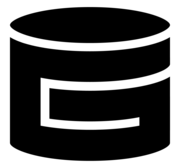
Best Data Collaboration Tools 2026
Data Collaboration Tools provide a platform for members of an organization to visualize, access and share data to help meet business objectives. These tools should have automated data lineage and metadata sourcing that allows for bulk uploads, as well as integrations with multiple third-party data sources. Cloud storage and migration are also common, as are automated cataloguing and categorization. Data governance is a crucial security and compliance feature that helps avoid data breaches. ...
We’ve collected videos, features, and capabilities below. Take me there.
All Products
Learn More about Data Collaboration Software
What are Data Collaboration Tools?
Data Collaboration Tools offer a centralized hub for data aggregation, from which co-workers can share and extract quantitative and qualitative data sets and insights to help meet business goals. Having access to reliable data facilitates accurate reporting and forecasting, making it easier for businesses to know where they are and where they need to be to reach their objectives.
Data should be compiled in an easily accessible way and presented in a ready-to-use format. Due to the importance of cybersecurity when dealing with large amounts of information, data governance is an essential part of any Data Collaboration Tool. Employees should be briefed and trained on basic security measures to avoid data breaches. Companies should also identify the tools that work best with third-party software integrations like cloud storage, ERP and CRM to complement data needs, workflows, and best practices.
Data Collaboration Tools Features:
Data Collaboration Tools may include the following features:
- Data and metadata sourcing
- Database integrations with software across several industries
- Bulk uploads
- Integrations with multiple data sources
- Cloud storage solution integration
- Cloud migration
- Compliance
- Data governance
- Data cataloging
- Reporting analytics
- High-speed data flows
- Data visibility and accessibility
- Data access requests
- Automated categorization
- Automated data lineage
- Machine Learning
Data Collaboration Tools Comparison
When choosing the right Data Collaboration Tools, buyers should consider the following key factors:
- Usability: How accessible and easy to visualize is the data? Is the dashboard user-friendly? How much training is needed to learn how to operate the software, take advantage of the various features, while keeping the data safe?
- Features: Data Collaboration Tools should include data and metadata sourcing, data governance, cloud migration and storage, bulk uploads, automated cataloging, and data lineage. Analytics reporting and forecasting tools are also common. Some products may have advanced machine learning algorithms that predict business outcomes based on data trends. Interested buyers should check to see if the product they are considering is highly rated for data governance. Which features are already in place in your workspace and which would add value? Would these tools improve workflows and make it easier to see how data is being managed?
- Integration Capacity: Does the software have integrations with multiple data sources like cloud storage, APIs, marketplaces, ERP and CRM systems, metadata collectors, or ETL and BI tools? How secure are data transfers, and what are the projected upload times?
Pricing Information
Most Data Collaboration Tools providers require that you contact them for customized package quotes. Prices will vary based on your data storage needs, the number of users, IPU software capacity, number of instances, or even the number of cores available for use by the licensed software.
Many vendors offer demos, while others may have free trials or a free version with fewer features. Premium versions can cost as little as $1 per user a month, or as high as $150,000 per year for up to 10 users.























